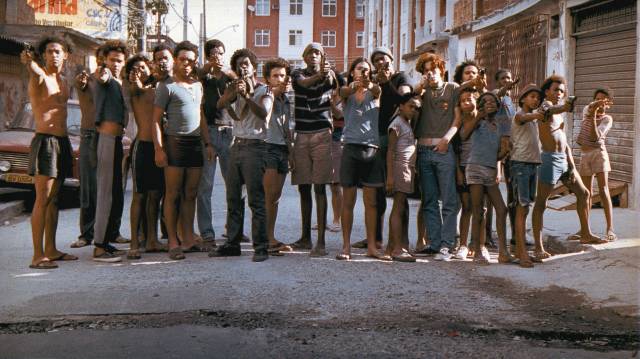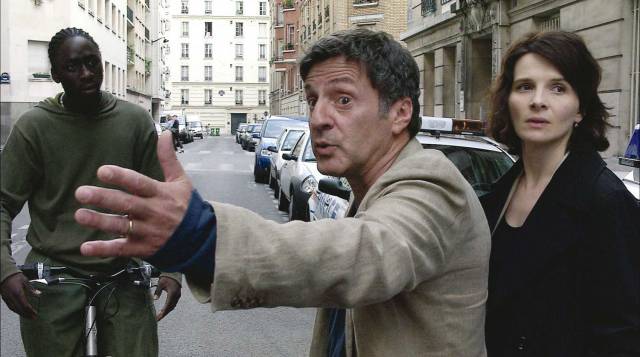
It’s always difficult to define what the “best” of anything is when it comes to film- as the usual saying goes, art is subjective. The first decade of the new century was filled with experimental, stylistic, and ambitious films created by an immense community of talented and legendary filmmakers from all over the world, each sharing their stories in ways that are both new and ambitious. So because it would be almost impossible to narrow down the “greatest” (in terms of entertainment) international films into just five spots, here are the top five “best” foreign language films that have each been picked for its director's ability to be exceptionally expressive of their respective vision and style.
 City of God (Brazil)
City of God (Brazil)A gritty and disturbing look at life in the slums of Rio de Janeiro, seen through the eyes of two young boys raised up in the same neighborhood; one of whom grows up to be a photographer while the other becomes a vicious, brutal gang leader. Shot with frenetic, uncompromising realism director Fernando Meirelles constructs a relentlessly brutal tale of survival, morality, and the attempts to escape violence and poverty. Though it is not a film for the faint of heart, there is no denying that it is an important film that glimpses into the dog-eat-dog world that these class of people endure as well as the self-destructive, cyclical nature of revenge. It will undoubtedly leave many shocked, unsettled, perhaps even angry, but never-the-less informed.
 Caché (France/Austria):
Caché (France/Austria):The life of a quiet upper-middle class family is interrupted when a series of mysterious videotapes are sent to their doorstep. The father, who is the TV host of a literature review talk-show, begins to investigate the possible suspects, of whom may or may not have a connection to his past. The film is perplexing and ambiguous; there is never a moment where one feels completely safe and that may be precisely the point. What happens when an unknown, unseen entity disrupts the privacy of your way of life? What happens when privacy at all is even momentarily violated? Michael Haneke’s troubling tale provides a slow but engaging commentary on surveillance and psychological repression.
 The Diving Bell and the Butterfly (France/United States):
The Diving Bell and the Butterfly (France/United States):An autobiographical depiction into the later life of writer and journalist Jean-Dominique Bauby, who suffered a stroke that left his entire body paralyzed, except for the left eye. Thus, through this eye lies his sole window into the world around him as well as his only source for communication. Mathieu Amalric delivers an emotionally sorrowing performance as a writer imprisoned in his own body. Director Julian Schnabel depicts the external issues that plague Bauby as well as his internal conflicts, letting viewers slip into Bauby’s own consciousness from time to time; we get to see what he sees and listen to his thoughts conflict with one another. This is the ultimate tear-jerker film that also encapsulates the power of memories and the mind when those things are all that’s left.
 The White Ribbon (Germany):
The White Ribbon (Germany):A young girl named Ofelia (Ivana Baquero), who lives in fascist Spain with her mother and brutal stepfather, retreats into an eerie, dark fantasy world where monsters and demons dwell and heaven and hell are indistinguishable. It is there that Ofelia meets a creature known as the “faun” who gives her three dangerous tasks that would ultimately grant her immortality should she complete them before the full moon. This is Guillermo Del Toro’s masterpiece that is both darkly magical and horrific; it is an enthralling fantasy that also deals with humanistic struggles set in a time and place where reality was almost as horrific as the fantasy world Ofelia journeys into.